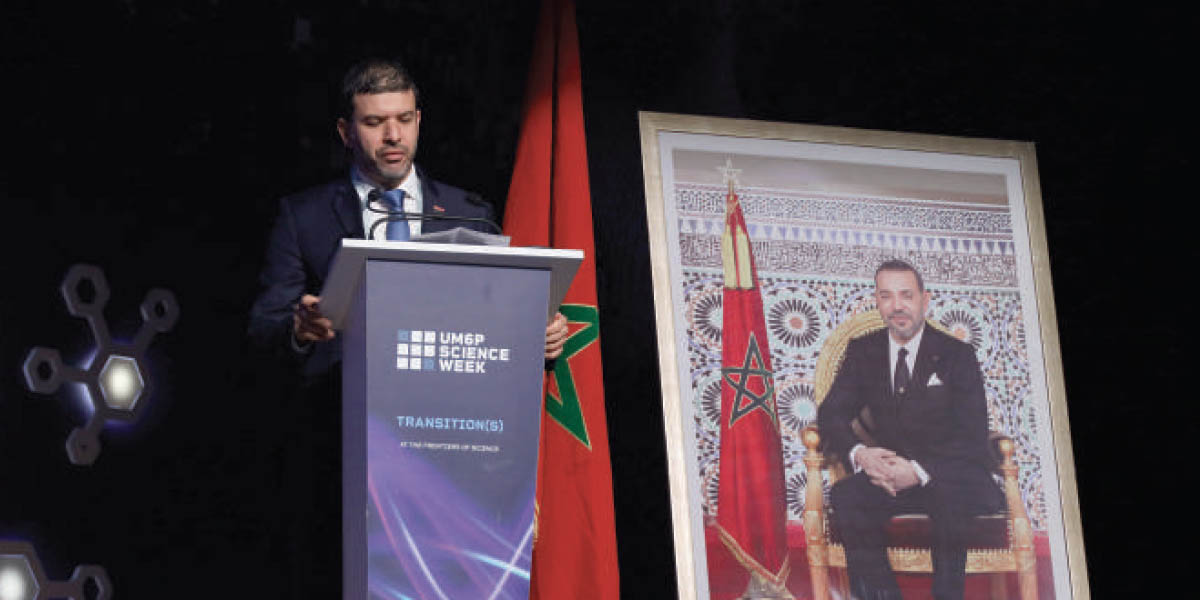
The fourth edition of Science Week, which kicked off on Monday at the Conference Center on the Mohammed VI Polytechnic University of Benjerir campus, will culminate in the publication of a white paper on transformations. The latter will collect hypotheses, ideas and proposed solutions emerging from this week of discussions.
Think of transformations as an essential response to today's era of multiple crises! A question that currently lies at the heart of the experiences facing the world in general and the scientific community in particular. This topic emerged at the heart of the discussions that took place within the framework of the fourth session of the Science Week at Mohammed VI Polytechnic University, which was launched on Monday at the Benguerir University Conference Center.
After the topic of “complexity,” comes the issue of “transitions,” which, like previous meetings, brought together an audience of thinkers, scientists, and philosophers within the framework of this scientific and annual meeting. Hisham Al Habti, President of UM6P, explained, “The world is going through several crises today, including climate change, food security, and digital transformation, and hence the impact of this transformation on the future of employment, health, and education.”
He continued: “Our goal today is to bring back the researchers and thinkers who addressed this transformation so that the university can give its students the opportunity to discuss this topic in order to find solutions related to these transformations and transformations.”
transformations involved
This scientific meeting will culminate in the drafting of a white paper on transformations that includes hypotheses, reflections, and proposals for solutions that will be presented in this scientific week, based on obvious questions.
“Human beings are in constant negotiations about their place in the universe, with all the changes occurring one after another. As a result, transformations involve an interdisciplinary approach that calls on the entire scientific community, in particular climate scientists, physicists, mathematicians, sociologists, and urban planners, to “Putting these viewpoints that science can spread to improve the quality of life on the same table as humans,” affirms Saad Al-Tazi, project manager at the President of Mohammed VI University in Riyadh.
Aside from the economic, financial and political aspects, the transitional stage, in the strict sense of the word, must go through an internal transitional stage that imposes a shift in lifestyles, especially a shift in mentalities with the desire to change things.
According to Raphael Leugere, scientific director of the Institute of Advanced Studies at Mohammed VI University, “the transformations we need can arise from Africa, which constitutes the originality of this university.” Addressing this topic shows that Africa can be part of the solution and innovate solutions, given that the point of view is not necessarily linked to the usual industrial aspect.
From transformation to transformation
Toujours Selon Raphaël Liogier, “At the point of view economic, financial and policy, the transition, proprement, do it passer by an internal transition that imposes a transformation of life modes, noting a mental transition with the changing volume.” Things”.
Moreover, this scientific meeting during this fourth session was attended by many world-famous scientists, thinkers and philosophers, most notably Fouad Al-Aroui, professor of the theory of knowledge, who explained the essence of the scientific week during the opening ceremony of this event. The question of “transfers” has been developed in depth by Raphael Lioger, as well as Daniel Dennett, a philosopher of perception and professor at the Center for Cognitive Studies at Tufts University in Medford, Massachusetts.
Yassin Saber/Echo Inspirations






